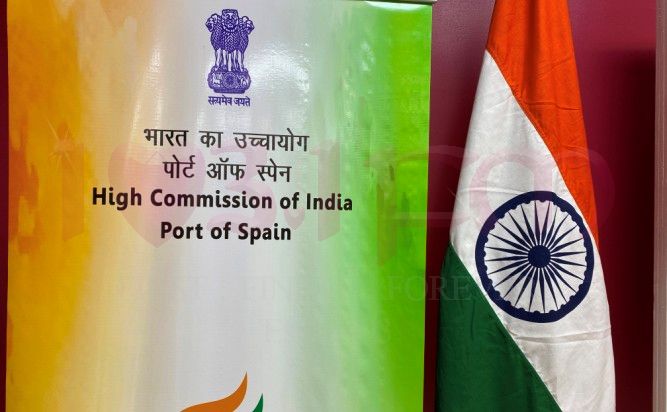ON Thursday, May 30, we commemorated the 179th anniversary of the first arrival of East Indian indentured labourers to our shores. One hundred and seventynine years ago, a ship called Fatel Razack set sail from Calcutta on February 16, 1845, to embark on the perilous journey to Trinidad.
According to the authors of ‘Kala pani revisited: Indian labour migrants and the sea crossing’, possibly exacerbating the prospect of this journey was the traditional belief that sea crossings were ‘antithetical to Hindu culture, entailing a separation of the traveller from the holy Ganges, thereby breaking the reincarnation cycle and engendering a loss of caste’.
However, fear and trepidation gave way to resolute steadfastness, and the first of the ancestral voyages commenced. Their arrival to these shores enkindled the cosmic fires of destiny, giving birth to our very existence and shaping the diverse core of modern-day Trinidad and Tobago.
The legacy of Indian Arrival Day is a celebration of a rich and exquisite culture, tempered with a solemn, introspective tribute to the struggle, sacrifice and survival of the bearers of that culture.
The East Indian indentures suffered great indignities during colonialism and struggled to be treated fairly post-Independence. Yet, through noble sacrifices and sheer nerve, they sought and created opportunities, laying a mighty foundation for their children and for future generations to grow and thrive.
Rising above the challenging circumstances of the cane fields and cocoa estates, phenomenal leaders in every sphere of professional endeavour were forged, forever transforming fields such as law, medicine, education, culture and the arts, commerce, politics and much more.
Today, the distinct East Indian influence in our cuisine, fashion, entertainment, language, customs and traditions is yet another aspect of the invaluable diversity that is a hallmark of Trinbagonian society.
While we celebrate the good, we must remember and learn from the hellish reality of their experiences on the estates. Local historian prof emerita Bridget Brereton, in referencing DV Trotman, pointed out that, ‘Colonialism rested on racism, which meant separate and unequal treatment for the non-white majority, psychological violence against the inferior groups, and disrespect for the culture of the people.’
Not only was this racism perpetrated against our ancestors, but such divisions were systematically encouraged and provoked among the same non-white majority by the colonial overlords. These divisions based on race in T&T were meted by the plantation masters to prevent us from uniting to challenge the iniquities of the colonial status quo.
Now that we are an independent republic, if we ever hope to move forward as a nation, we must banish the ‘divide and rule’ mentality-one of the last spirits of colonial governance that continues to haunt us at all levels of society. This is perhaps what Bob Marley meant by ’emancipate yourself from mental slavery’.
With the end of colonialism, each successive generation has moved further away from the shameful heritage of racial division and has begun to embrace our true identity as proud Trinbagonians. When we reject racism, it is only then that we would have truly left the plantation behind, and are ready to govern ourselves as independent citizens of this great nation of ours.
No one should care about the race or ethnicity of the person who governs us, but only about whether they are eminently competent to do the job, in the same way that we do not care about the race of the doctor treating us, only that they are qualified to save lives. This is the Trinidad and Tobago that we must aspire towards: a place where citizens will be able to progress based only on their own merits and abilities.
Those who came before us suffered unspeakable horrors because of racism and elitism, and we would only disgrace their memory if we wield those divisive weapons of their oppressors against each other. Therefore, as descendants of the enslaved and indentured, it is our duty to ensure that such evils are exorcised from the soul of our nation.
Prejudice is poisonous to national development and must become extinct from North to South; from the playground to the Parliament. May there be no more attacks and vandalism of our holy places of worship, no more threats of Calcutta ships, no more displays of sari skits, and no more vile and divisive conversations, especially on social media.
Together, we can create a world which ensures that every human being is afforded the dignity, equality and respect that our ancestors-both the enslaved and indentured-were denied.Over these past 179 years, citizens of Indian descent have contributed considerably to the growth and development of this country with their blood, sweat and tears, and continue to do so, honouring their ancestors. Without their sacrifice, none of us would be here.
Trinidad and Tobago is a medley of diverse notes that when played together in harmony resonates into the sound of a sweet melody.
Davendranath Tancoo MP, Oropouche West



Responses